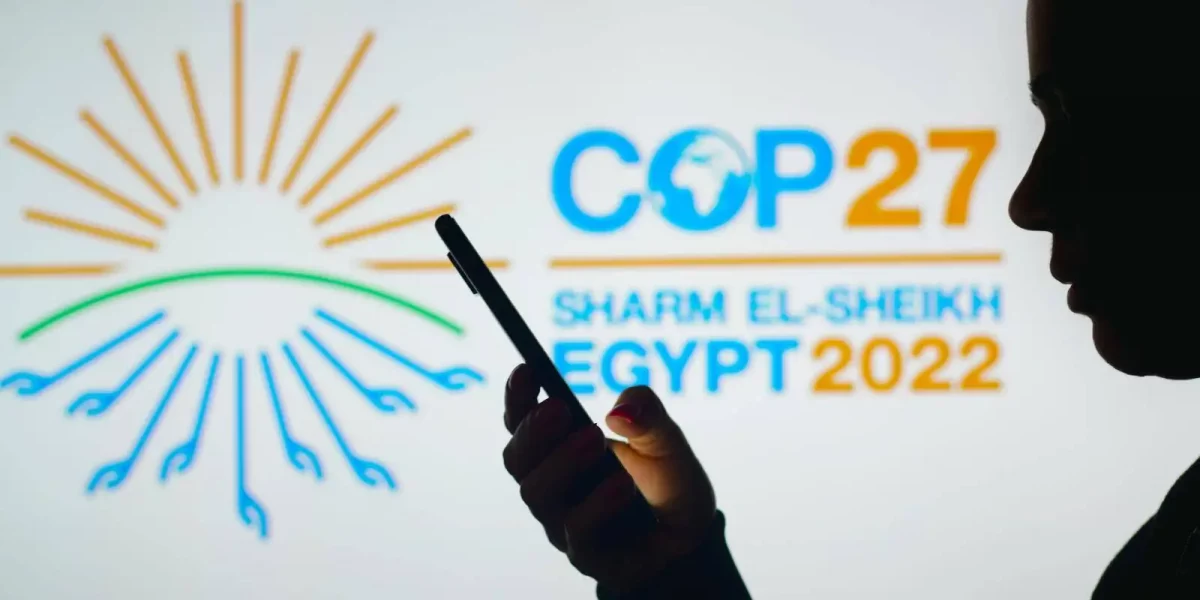Egypt will on November 6, lead the African continent in the march against Climate Change Crisis that keeps dawning on the globe and Africa immensely.
The high-level conference dubbed COP27 will be the 27th Conference of the Parties of the UNFCCC which will build on the outcomes of COP26 that took place last year.
COP27 seeks to deliver action on an array of issues critical to tackling the climate emergency – from urgently reducing greenhouse gas emissions, building resilience, and adapting to the inevitable impacts of climate change, to delivering on the commitments to finance climate action in developing countries.
As Africa embarks on an investible and bank and climate-positive impact projects aiming at an impactful scope and regional development that might win governments, philanthropists’ funding during COP 27.
Some of these projects will be covering energy transition, food security, carbon credits, digital transformation, the Blue Economy, and water as cities carry a funding ticket ranging between USD$ 120 million and US$ 10 billion.
Despite the agreed terms during the Paris Agreement, there is a vacuum when it comes to developing the projects as most African countries are still developing and hence need support to achieve most of the projects.
“There is an urgent need to unlock climate finance through a massive mobilization of public and private finance for climate actions solutions at the local, national, and regional levels across the themes of climate action,” said Egyptian Minister of Foreign Affairs and COP27 President Designate, Sameh Shoukry.
Egypt being the host is at a vantage point as it leads in main projects that involve; US$ 10 billion for clean energy production from wind and solar at a combined capacity of 11,300 MW, 6 billion US dollars to set up the electric light rail to significantly cut down the use of buses for passenger and freight services across the country, and US$ 600 million to develop six solar desalination plants.
The projects will mainly improve food production as bare lands are reclaimed, and water production is maximized not forgetting the reduction of carbon emissions and fossil fuel power plants.
Additionally US$ 10 billion fundraise targets the restoration of degraded land in 32 countries that have committed to restoring 128 million hectares of land. This will be funded through a mix of private finance, and public and philanthropy grants. Already US$ 1.4 billion has been committed to the project.
African leaders urged most of their fellow African countries to focus on resilience and adaptation investments gearing up ahead of vision 2030 of Sustainable Development Goals attainment.
The Environment plays a key role hence the intention to conserve the 2 million square kilometres in the Western Indian Ocean through a Blue Bond and debt-for-nature swap initiative, valued at US$ 1.5 billion US dollars.
Nations will benefit in diverse ways ie Nigeria’s big power project, the 3 GW Mambilla hydroelectric power project has been lined up for financing, with a US$ 6 billion budget.
A project that upon completion, it will produce 5,457 GWh of renewable energy, pushing up the use of clean energy in the country to 30 per cent.
A portion of that energy will be exported to ECOWAS – a regional political and economic union of fifteen countries located in West Africa.
To further increase the supply of investment-ready clean projects in Comoros, Kenya, Madagascar, Mozambique, Tanzania, and Seychelles ocean coastlines, a Blue Natural Capital Facility worth US$ 120 million will be marketed to investors.
As African government leaders continue to aggressively mobilize these funds, they are optimistic that COP 27 – already christened, ‘Africa’s COP’ – will unlock most of the numerous pledges made by private investors and governments from western nations.
About the Author
Kwabe Victor
Contributor
Multimedia Journalist. Aspiring documentary/Investigative journalist, currently immersed in writing Political, Business and Human Interest Stories. Speak Life.
















